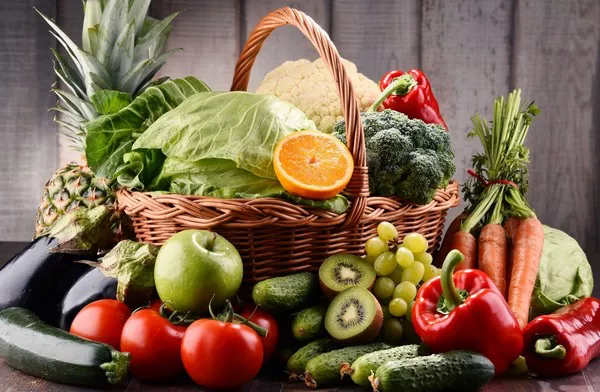Vitamin B6, also known as pyridoxine, is a water-soluble vitamin that plays a crucial role in various bodily functions. It is essential for brain development and function, the production of neurotransmitters, and the metabolism of amino acids. In this comprehensive article, we will delve into the world of vitamin B6, discussing its importance, recommended daily intake, and, most importantly, the foods that are rich in this essential nutrient.
Understanding the Role of Vitamin B6 (Pyridoxine)
Vitamin B6 is a versatile nutrient with several key functions in the body:
Neurotransmitter Production: It is involved in the synthesis of neurotransmitters like serotonin and dopamine, which regulate mood and behavior.
Amino Acid Metabolism: Vitamin B6 helps metabolize amino acids, the building blocks of proteins. This process is crucial for the production of enzymes and hemoglobin.
Brain Development: During pregnancy and infancy, vitamin B6 is vital for proper brain development.
Immune System Support: It plays a role in immune system function by aiding in the production of antibodies.
Hemoglobin Formation: Vitamin B6 is essential for the formation of hemoglobin, the protein that carries oxygen in the blood.
Recommended Daily Intake of Vitamin B6
The recommended daily intake of vitamin B6 varies by age and gender. Generally, the Recommended Dietary Allowance (RDA) for vitamin B6 is as follows:
Infants (0-6 months): 0.1 milligrams (mg)
Infants (7-12 months): 0.3 mg
Children (1-3 years): 0.5 mg
Children (4-8 years): 0.6 mg
Children (9-13 years): 1 mg
Adolescents (14-18 years): 1.2 mg for males, 1.0 mg for females
Adults (19-50 years): 1.3 mg for males, 1.2 mg for females
Adults (51 years and older): 1.7 mg for males, 1.5 mg for females
Pregnant individuals: 1.9 mg
Breastfeeding individuals: 2.0 mg
It’s important to note that individual vitamin B6 needs may vary based on factors such as pregnancy, lactation, medical conditions, and medications. Consult with a healthcare provider to determine your specific requirements.
Top Foods Rich in Vitamin B6 (Pyridoxine)
Incorporating vitamin B6-rich foods into your diet can help you meet your daily requirements naturally. Here is a list of foods that are abundant in this essential nutrient:
1. Poultry
Poultry, such as chicken and turkey, is an excellent source of vitamin B6. A 3-ounce serving of cooked chicken breast provides approximately 0.5 to 0.6 mg of vitamin B6.
2. Fish
Various fish, particularly salmon, tuna, and trout, are rich in vitamin B6. A 3-ounce serving of cooked salmon offers around 0.6 to 0.7 mg of vitamin B6.
3. Lean Meats
Lean cuts of beef, pork, and lamb contain significant amounts of vitamin B6. A 3-ounce serving of cooked beef provides approximately 0.5 mg of vitamin B6.
4. Potatoes
Potatoes, especially when consumed with the skin, are a good source of vitamin B6. One medium-sized baked potato offers about 0.7 mg of vitamin B6.
5. Chickpeas
Chickpeas, a staple in many cuisines, are rich in vitamin B6. A half-cup of cooked chickpeas provides approximately 0.5 mg of vitamin B6.
6. Avocado
Avocado is not only a healthy fat source but also contains vitamin B6. One medium-sized avocado contains about 0.5 mg of vitamin B6.
7. Sunflower Seeds
Sunflower seeds are a nutritious snack and a good source of vitamin B6. A quarter-cup of sunflower seeds offers approximately 0.3 mg of vitamin B6.
8. Fortified Cereals
Some breakfast cereals are fortified with vitamins and minerals, including vitamin B6. Check the nutrition label for specific amounts.
9. Beans and Legumes
Beans and legumes like lentils and black beans contain vitamin B6. A half-cup of cooked lentils provides around 0.2 mg of vitamin B6.
10. Pistachio Nuts
Pistachio nuts are not only delicious but also a source of vitamin B6. A quarter-cup of pistachios offers approximately 0.2 mg of vitamin B6.
11. Bananas
Bananas are a fruit source of vitamin B6. One medium-sized banana contains about 0.4 mg of vitamin B6.
12. Spinach
Leafy greens like spinach contain a small amount of vitamin B6. A half-cup of cooked spinach provides roughly 0.1 mg of vitamin B6.
13. Tofu
Tofu, a popular plant-based protein, contains vitamin B6. A 3-ounce serving of firm tofu offers approximately 0.2 mg of vitamin B6.
14. Pistachio Nuts
Pistachio nuts are not only delicious but also a source of vitamin B6. A quarter-cup of pistachios offers approximately 0.2 mg of vitamin B6.
15. Watermelon
Watermelon is a refreshing fruit that contains a small amount of vitamin B6. A one-cup serving of diced watermelon provides about 0.1 mg of vitamin B6.
Supplements and Vitamin B6
While obtaining vitamin B6 from natural food sources is ideal, vitamin B6 supplements are available over-the-counter. However, it’s important to consult with a healthcare professional before starting any supplements to determine if they are necessary for your specific health needs.
In Conclusion
Vitamin B6, or pyridoxine, is a vital nutrient with multiple essential functions in the body. By incorporating vitamin B6-rich foods into your diet, you can naturally meet your daily requirements and support various bodily processes. Remember that individual vitamin B6 needs may vary, so consult with your healthcare provider to ensure you meet your specific nutritional requirements.


